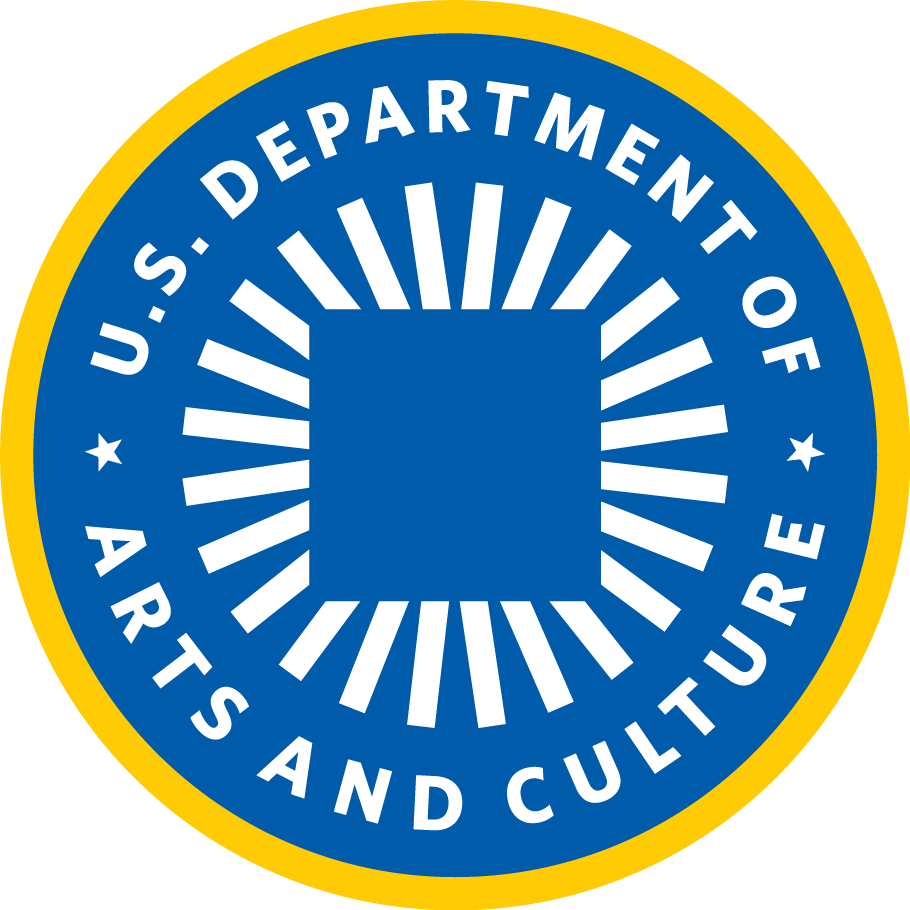We're Forming A SUPER PAC: A SUPER PARTICIPATORY ARTS COALITION.
Traditional Super PACs fuel politicians with vast sums of money; the USDAC Super PAC will power democracy with mass artistic creativity.
From September 6-November 7, 2016, the people-powered U.S. Department of Arts and Culture sponsored the USDAC Super PAC to spur creative public participation leading up to the presidential election. We invited artists and allies to show the country how democracy is practiced. Anyone can join the USDAC Super PAC as an ExtraSuperDelegate, creating a Super Public Act of Compassion or Super Participatory Act of Culture that fosters dialogue and connection, activates civic agency, counters narratives of hate, and encourages full democratic participation. The Super PAC Toolkit is an evergreen resource that can be used to inspire creative civic action anytime. Download the toolkit, watch the videos, and activate creativity on behalf of democracy!
The Toolkit includes nine prototype projects that you can replicate or adapt, plus all the information you need to create your own project. You’ll also get access to the USDAC Super PAC Public Folder, chockful of signs, social media graphics, flyers, press advisories, detailed project information, and even a printable stick-on ExtraSuperDelegate badge.
here are some of the projects you'll find in the toolkit:
"LAWNCARE" invites everyone to repurpose political yard signs to illustrate the values they want to campaign for, rather than using them to advertise politicians.
"DEMOCRACY UNCUT: A HEARABLE DIALOGUE ON RACE AND POLICING uses on-the-street video interviews to invite people who disagree to express themselves and hear each other, promoting solutions-driven public conversation.
"MAKE AMERICA CRATE" uses a giant, portable soapbox to invite anyone to step up and express opinions, ideas, and feelings on what makes America.
"BRING YOUR OWN VOICE (BYOV)" invites readers to perform a tribute to one of their favorite writers, reinvigorating one of the most basic aspects of social participation-speaking up.
"THE BUFFALO COMMONS (UN)VOTING FAIR" is a playful participatory event including multiple activities representing different aspects of the democratic process, imagined and experienced in new, inclusive ways: art making, speaking, yard signs, caucusing, and more.
"Papel Picado Now!" uses a traditional Mexican artform- cut paper- to create powerful messages that can be made by children or adults and displayed anywhere.
"POP-UP STORY BOOTH" takes to public parks and other settings to increase awareness about and discussion of changes affecting a community, sharing community members' stories, concerns, and hopes.
"LES AGENTS PROVOCATEURS" uses a singing and dancing flash mob to create pop-up performances of political theater in public spaces.
"BLACKBUSTER Pop Up Projection" sparks dialogue about equal representation in media and the democratic process needed to achieve it by holding a film screening and discussion on a public street.
Whether you'd like to replicate one of these projects or create your own, the Toolkit will support you. Your Super PAC event can be small and private, large and public, or anything in between. Be sure to post your documentation to social media with the hashtags #USDAC #SuperPAC, so everyone can be inspired by what you create.
WHY THE SUPER PAC? With politics awash in big money and a media machine that largely ignores the grassroots organizers who raise the critical issues that drive democracy, it’s easy to feel like our voices don’t count. (And too many literally don’t; across the country there are millions who pay taxes but aren’t permitted to vote and millions more who are discouraged from exercising that right.) Meanwhile, our Presidential debates are opportunities for candidates to spout soundbites and hurl insults. Millions tune in, watching and squirming, tweeting and fuming. But aren’t there better ways to engage with each other, moving from debate to dialogue at this critical time? We think so!


